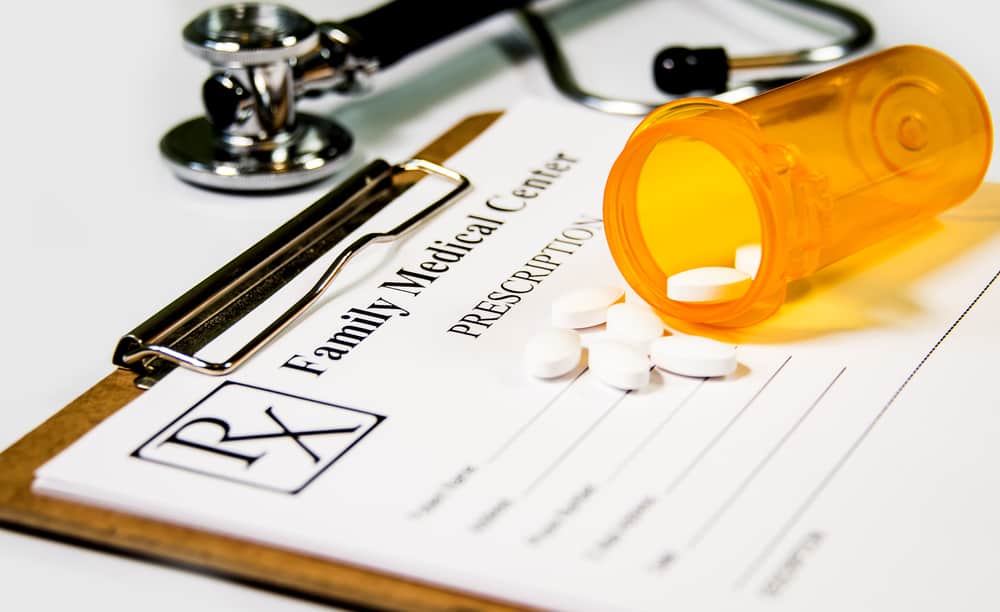Contents:
- Medical Video: Zetia for High Cholesterol: Side Effects, Dosage, & Usage
- Medications for cholesterol should not be used without a doctor's prescription
- 1. Cholesterol drugs are not intended for everyone
- 2. Cholesterol drugs have different side effects
- 3. Cholesterol drugs should not be taken together with the drug
- List of cholesterol medications that are mandatory by doctor
Medical Video: Zetia for High Cholesterol: Side Effects, Dosage, & Usage
Treatment of high cholesterol usually begins with a modest lifestyle change, such as designing a healthy diet and regular exercise. If this method does not work, for example, because your blood pressure is already very high and at risk of other complications, doctors can prescribe cholesterol-lowering drugs for your regular consumption.So, if the medication runs out and the symptoms don't subside, can you buy and take medication for cholesterol without a doctor's prescription?
Medications for cholesterol should not be used without a doctor's prescription
When their cholesterol medication is used up, it is not uncommon for people to take the initiative to repurchase it without using a prescription. They might think that in this way they will save more time and energy, because there is no need to go back to the doctor. After all, also already memorized the drug brand and the dosage.
This is the waybig mistake and can't be done. Medications for cholesterol are not designed to be traded freely. You have to buy it by prescription, both for the initial dose and the refill dose.
There are several reasons that underlie this.
1. Cholesterol drugs are not intended for everyone
Some people consume this to reduce cholesterol levels to prevent strokes and heart attacks. However, medication for cholesterol must be taken according to the doctor's prescription because this drug is not intended for everyone. Take for example, the consumption of statins and other cholesterol drugs is not intended for pregnant women because it can cause certain side effects to the risk of causing birth defects.
According to Antonio M. Gotto Jr., MD, a professor of medicine at Weill Medical College of Cornell University in New York, statins and other cholesterol-lowering drugs are also not recommended for women of childbearing age. These drugs are also not recommended for use in people who are at low risk of having a stroke or heart attack.
2. Cholesterol drugs have different side effects
All types of drugs have side effects, including cholesterol-lowering drugs. When prescribing a medication for cholesterol, your doctor will consider the type and dosage based on how high your body's cholesterol levels are, the possibility of risk, a history of vascular disease, and possible side effects.
In general, the side effects of cholesterol-lowering drugs include nausea, abdominal pain, constipation, diarrhea, drowsiness, and muscle pain. But for cholesterol drugs such as statins have additional side effects, which increases the risk of muscle tissue damage or liver damage. This risk will increase if you take a statin without a prescription, especially if you take antibiotics or other cholesterol drugs simultaneously.
Although some cholesterol drugs have the same content, the formula can be different if produced by different drug companies. This will affect the medicinal properties and side effects caused. That's why it's very important to follow a doctor's prescription before deciding to take cholesterol medication.
3. Cholesterol drugs should not be taken together with the drug
Before redeeming a prescription at a pharmacy, the doctor will explain the procedure for taking cholesterol medications that are good and correct according to your condition. How many times does the cholesterol medication have to be taken in a day, the possible side effects, consumed for how long, until the provisions for which the drug can be taken with other drugs. Well, if you take medicine without a prescription, you certainly will not know the side effects that might occur if you are determined to take cholesterol-lowering drugs along with other drugs.
Because the effectiveness of cholesterol drugs will be disrupted by certain food and supplemental intake. This will get worse when you take antibiotics or other drugs together with statins because it can increase the side effects of statins.
Unless statins cause very serious side effects for your body and are not enough to help reduce cholesterol levels, chances are the doctor will give other drugs that can help the effectiveness of statins in your body. Therefore, you must have a prescription before deciding to take cholesterol medication.
List of cholesterol medications that are mandatory by doctor
The most commonly prescribed type of medication for cholesterol is statins. This drug works by destroying cholesterol-forming substances in the liver which will then be released from the liver. Statin drugs can help reduce the risk of coronary artery disease by helping the body absorb good cholesterol from the arterial wall.
The following are some of the statins that are often prescribed, including:
- Altoprev or mevacor (lovastatin)
- Crestor (rosuvastatin)
- Lescol (fluvastatin)
- Lipitor (atorvastatin)
- Livalo (pitavastatin)
- Pravachol (pravastatin)
- Zocor (simvastatin)
Before deciding to take cholesterol drugs, you must consult a doctor to get the right medication according to the symptoms that are felt. Remember, avoid buying and drinking cholesterol medication carelessly without a doctor's prescription, huh.












